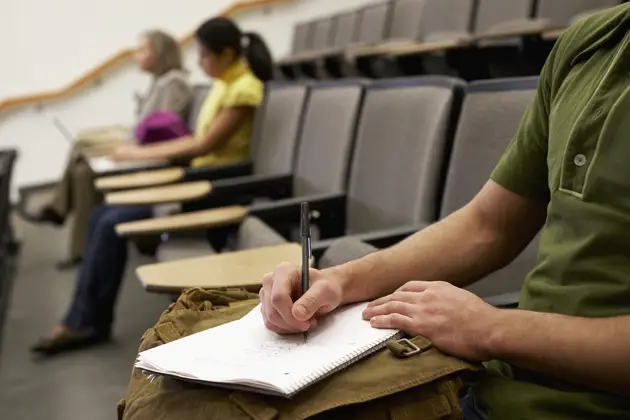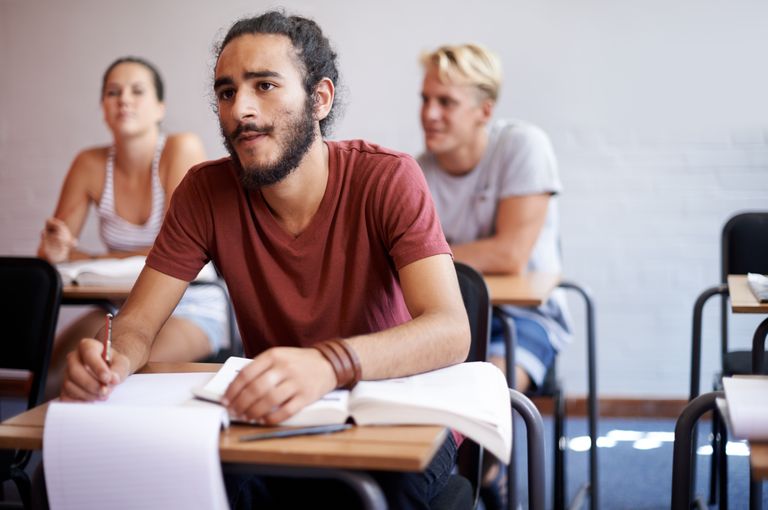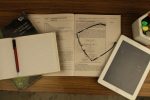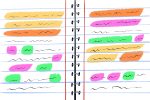For the past three years, in the first week of every semester, I have come to realize that I can expect to be told two things from my professors.
First, that I could not hope to pass the course without showing up, but that the professor would not be taking roll; and second, that studies show that you remember information better if you write out your notes instead of typing them. (They would also then add, futilely, that there is a zero-tolerance policy for phones in their classroom.)
When it comes to taking notes in any class, for me, if I am not actively writing the information being presented by the professor, then it’ll go in one ear and out the other. So, each semester, when my professors tell me that studies show I’ll do better by writing notes rather than typing them, it doesn’t affect me. It wasn’t until recently, though, that I began to wonder if professors said this to benefit students, or if their faux facts were just a ploy to keep students from falling prey to the distractions of the web. Since my first semester in college, I have watched my classmates who take notes on their laptops flip from a Word document, to Pinterest, to a messaging app all before the professor has switched to the next slide. The switching between tabs is a big reason why I personally can’t take notes on my laptop, even though I catch myself doodling, which can be just as distracting.
So, why do professors “prefer” their students take notes on paper instead of with a laptop? Is it because students who do so test better? Or is it because a notebook seems to be less distracting than a device?

According to “Scientific American,” a study conducted by Pam Mueller and Daniel Oppenheimer proves that students who take notes on paper do, in fact, retain more of the information. “Mueller and Oppenheimer postulate that taking notes by hand requires different types of cognitive processing than taking notes on a laptop, and these different processes have consequences for learning,” the article says. The study is called The Pen is Mightier Than the Keyboard, and in it, Mueller and Oppenheimer claim: “In three studies, we found that students who took notes on laptops performed worse on conceptual questions than student who took notes longhand.”
The “Scientific American” article describes how Mueller and Oppenheimer prove that it’s better for your grades to take notes with a pen rather than a device. The process students go through when taking notes on paper is the key to the findings. By writing out notes, students are not only listening, they are breaking down the information and then summarizing it into a note format—short enough to write down, but with enough detail to remember. The study explains that since students can type faster than they can write, a laptop allows students to note verbatim what the professor says or has on a slide. Therefore, students who type instead of write their notes skip the summarization step of the process, hindering them from retaining the information.
Still, even if skeptics remain unconvinced about the didactic benefits of handwriting notes, there is the issue of distraction. Typing out a professor’s remarks means susceptibility to the siren song of the internet, a problem that Luddite note-takers avoid completely. One might argue that paper-and-pencil pushers face their own tests of focus, such as the temptation to doodle, daydream or doze off, but such distractions are A) Somewhat unavoidable, in that if you’re prone to daydreaming, the problem is self-discipline, not one of handwritten vs. typed, and B) Less potent than their electronic counterparts.
If doodling were as captivating as the internet, humanity would have never made it past doodling to create the internet; there are simply too many ways to have fun on the web. Even more incriminating than news sites and Wikipedia, however, is social media, and once a student finds themselves circling the rabbit hole of Facebook or Reddit, the battle for their attention is all but lost. Though ultimately professors want students to learn to exercise self-restraint in their social media use, when it comes to class, abstinence is the surest policy; save the moderation for after lecture.
In an article written by Beth Fisher for The Teaching Center, the author explains that, as evidenced by two classroom-based studies, while laptops bring some benefits, they also create a distraction.
Fisher first cites a study by the University of Michigan Center for Research on Learning and Teaching (CRLT). Fisher expands on how the CRLT looked at the attentiveness, engagement and learning of students who used laptops in class. The study found that 70 percent of the students said that having laptops in lecture caused them to spend in-class time checking emails or social networks. To be fair, Fisher points out, the study indicates that students can use laptops for class activities that go beyond taking notes, such as asking and answering questions and reviewing recorded lectures, meaning laptops offer classrooms pedagogical potential as well as distraction.
In a second study, this one done by Carrie B. Fried, Fisher analyzes how students used their laptops while in class. In the report, Fried surveyed 137 students in a classroom where laptops were allowed for note taking, but were not required. Fried’s findings showed that students with laptops were more likely to be distracted, saying, “A majority (64%) of the respondents reported using their laptops during at least one class session.” Fisher then says what students were doing other than class activities while on their laptop. “They reported using their laptops to take course notes (83.3%), send email (81%), send and receive instant messages (68%), surf the internet (43%), and play games (25%).”
While laptops help students accomplish more in general, and certainly have an important role to play in the modern college education, it seems that the classic pad-and-pen combination may be the most effective way to take notes. So, in the next semester when my professors tell me that they prefer that students take notes on paper, I’ll be writing it down.













